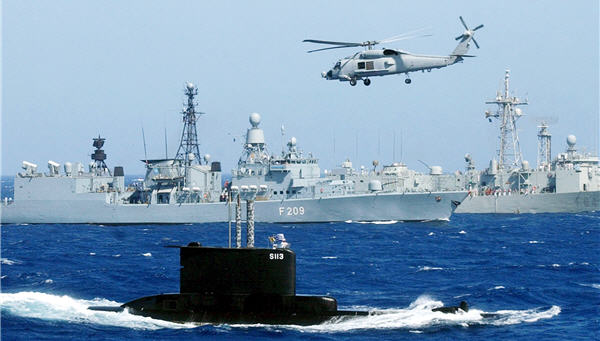
"Our ports and waterways remain woefully vulnerable to terrorist attacks. Nearly a decade after 9/11 revolutionized aviation security, we are long overdue to apply many of those lessons learned to maritime security." So says Admiral Harry Ulrich, former Commander of US Naval Forces Europe, opening his Atlantic Council issue brief "International Maritime Safety and Security Exchange."
Ulrich notes that, "As our image of aviation security matures, we have become more accepting of previously objectionable government-authorized technological applications, routines and procedures." But one consequence of hardening commercial aviation defenses is that terrorists are likely to seek out softer targets, including "our maritime industry and waterways."
In the case of airline security, it took several tragedies to awaken us to the need for these countermeasures. Ulrich suggests that, in the maritime domain, we should instead be proactive and act before the terrorists make it necessary.
Current maritime information sharing systems — notably the Virtual Regional Maritime Traffic Center (VRMTC), the Maritime Safety and Security Information System (MSSIS), the Long Range Identification and Tracking (LRIT) and the Regional Co-Operation Agreement on Combating Piracy and Armed Robbery against Ships in Asia — are "ad hoc, suffer from a lack of coordination, and are incompatible with one another." Further, they leave "significant coverage and communication gaps."
Ulrich proposes a unified program which he dubs an International Maritime Safety and Security Exchange (IMSSE). He explains:
Exchange business models (EBM) are standard in the financial, health, industrial and government sectors. Essentially, EBMs connect providers and consumers through the exchange of some product or commodity. In this example, the commodity is information needed for security and profitable commerce. This proposal brings together members of the IMSSE for the willing exchange of maritime information in support of their own safety, security and commercial needs. The IMSSE should take on a revolving door approach that allows members to consume and/or provide maritime information. Structured in this way, an IMSSE will permit consumers and providers to realize the symbiotic relationship on which long-term global maritime commerce and security depends, in spite of differing self-interests.
It obviously makes sense to learn from both the post-9/11 airline security measures and business exchange models as Ulrich suggests. More often than not, alas, governments tend to wait until after a preventable tragedy to act.
While I’m by no means expert on matters of maritime security, I remember vividly warnings going back to the early 1990s about the woeful vulnerability of our ports, with countless international security experts pointing to container shipping as the most obviously exploitable vulnerability in our system. While, thankfully, it doesn’t seem to have yet happened, it would seem inevitable: terrorists have struck Western airline, train, and subway infrastructure already.
Additionally, as the explosion in piracy off the Somali coast and elsewhere over the past two years has demonstrated, the sheer vastness of the sea makes providing security against even the most amateur threats is exceedingly difficult. NATO and the EU have made great strides in developing protocols and systems to increase their efficiency in working together in counter-piracy operations but, again, it has taken place in the midst of active operations rather than in the anticipation of a seemingly obvious threat.
Harry Ulrich has given governments and industry not only a wake-up call but the outlines of a plan to get out in front of a problem for a change. Time will tell if they seize the opportunity.
James Joyner is managing editor of the Atlantic Council. NATO photo.
Image: maritime-security-NATO.jpg
